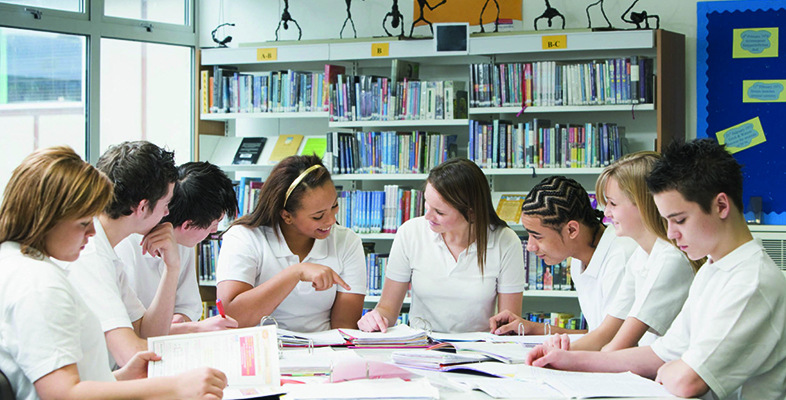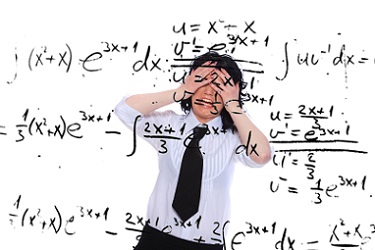1.2 How can mathematics be taught effectively?
The evidence suggests that schools make much less difference to student outcomes than you would expect – only about 10 per cent of variation in student outcomes is attributable to the school. The evidence shows that teachers make a great deal more difference. Hattie (2012, p. 23) suggests that:
the differences between high-effect and low-effect teachers are primarily related to the attitudes and expectations that teachers have when they decide on the key issues of teaching – that is, what to teach and at what level of difficulty, and their understandings of progress and of the effects of their teaching.
Hattie and his colleagues have carried out a review of the literature and have identified five ‘dimensions of excellence’ that characterise what they term ‘expert teachers’. These are listed below.
Expert teachers can identify the most effective ways to represent their subject
This is not just about having good subject knowledge. Expert teachers organise their subject knowledge effectively, relating concepts to previous experiences and everyday contexts, and can detect and concentrate on the ideas within the subject that have the most relevance. They can predict the topics that students will find difficult and can respond to the students’ needs.
Good teachers of mathematics have a connectionist (Askew et al., 1997) view of mathematics, not teaching discrete chunks of mathematics but supporting students in seeing how each topic draws on and extends the ideas that they have worked with before. Being a connectionist teacher also requires you to think about how the mathematics that your students are learning is part of the real world and why learning is important to them not just later when they are employed but at the age they are now.
Expert teachers can create an optimal classroom climate for learning
An optimal classroom climate for learning is one in which there is an atmosphere of trust. It is one in which students are able to make mistakes without losing confidence; they ask questions and are engaged in learning.
What happens if your students make a mistake when answering a question? Is the mistake quickly moved on from or is it explored and celebrated because it gives the class an opportunity to learn more? Do you ask for conjectures or only for answers? Do you want to know what your students think or just what they know? Students are especially reluctant to reveal their lack of confidence in their knowledge in mathematics, where they often consider there is one right answer and one right way to get to it. Tackling such ideas is a vital part of enabling your students to learn well.
Expert teachers monitor learning and provide feedback
Lessons rarely go exactly as planned, and expert teachers are able to monitor how their students are doing and respond appropriately. They can detect when interest is waning and know who is finding difficulty in understanding the lesson. The feedback that they provide focuses on moving learning forward. These ideas are tackled in the assessment course [Tip: hold Ctrl and click a link to open it in a new tab. (Hide tip)] , which has been written as a companion to this course.
Effective mathematics teachers use students’ descriptions of their methods and their reasoning to help establish and emphasise connections and address misconceptions.
Expert teachers believe that all students can reach the success criteria
This is about more than having high expectations. Expert teachers are passionate about ensuring that all their students are learning, and understand the importance of organising success.
Highly effective mathematics teachers have knowledge, understanding and awareness of conceptual connections within and between the areas of the mathematics curriculum. This means that if students are not making progress they have alternative explanations and representations that can be used to ensure success.
Expert teachers influence student outcomes
An expert teacher will have an influence on student outcomes – not just on examination results, but on developing deep and conceptual understandings. They will help students to become autonomous learners that are willing to take risks.
Effective teachers of mathematics do not just help their students to convert from a fraction to a decimal; they also demand that they think about when one should be used in preference to the other, or whether the two forms of representation are always equivalent. Students who habitually make such connections use efficient strategies for all purposes including mental arithmetic.
Activity 2 Mastering mathematics teaching
Consider the last two points of Hattie’s dimensions of excellence above. The ideas involved in ‘Expert teachers are passionate about ensuring that all their students are learning, and understand the importance of organising success’ and ‘on developing deep and conceptual understandings’ relate closely to Maths Mastery.
Use your preferred search engine to search for information on ‘Maths Mastery’. In particular, look for information on the NCETM website.
List five key ideas that distinguish teaching for Mathematics Mastery from more traditional ways of teaching mathematics. Then write two paragraphs on how your five key ideas could lead to a deep and conceptual understanding of mathematics.


